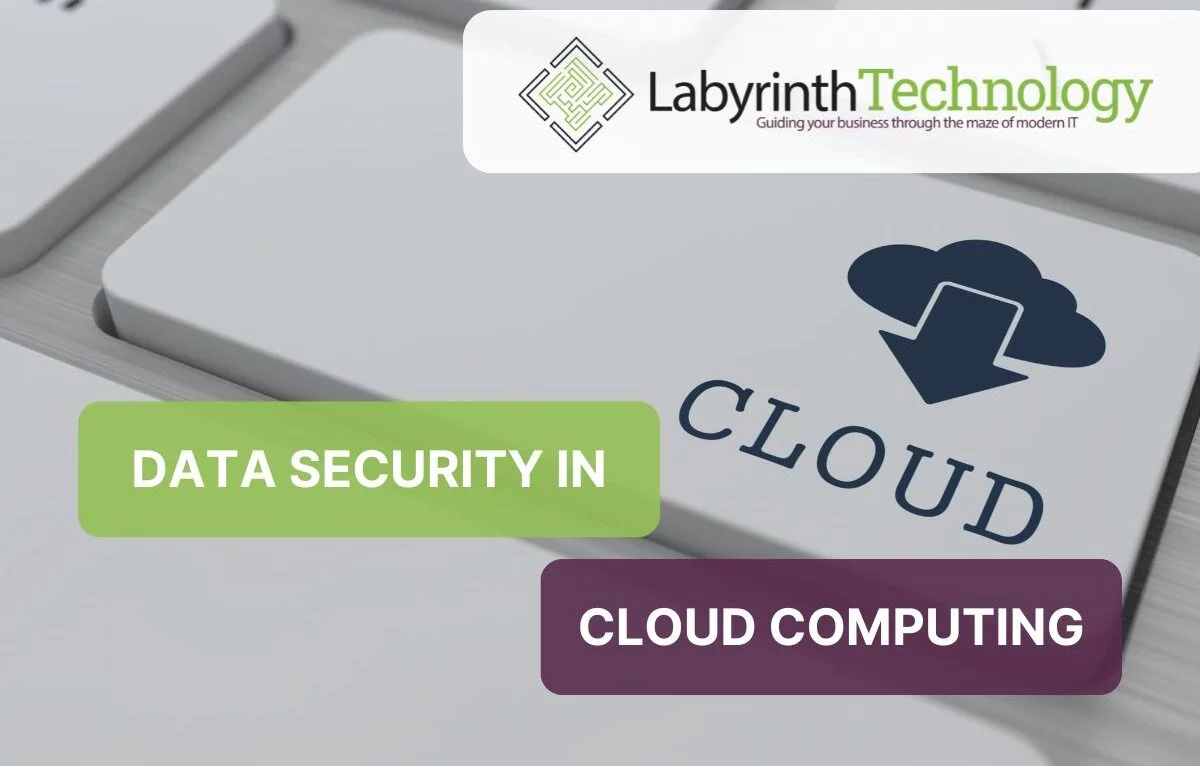
Cloud computing has become an integral part of business operations. It offers flexibility, scalability, and cost-effectiveness, making it a valuable resource for businesses of all sizes. But what exactly is cloud computing? Simply put, it is the delivery of computing services—including servers, storage, databases, networking, software, and analytics—over the internet (the cloud). Companies can store and manage their data on remote servers rather than maintaining physical servers in-house. This shift has revolutionised how businesses operate, allowing for greater efficiency and access to cutting-edge technology.
Storing data in the cloud provides several compelling benefits. For one, it eliminates the need for significant upfront investments in physical hardware, reducing capital expenditure. Cloud storage also offers unparalleled scalability; you can easily increase or decrease your storage capacity based on your business needs. Moreover, cloud service providers typically offer robust backup and disaster recovery solutions, ensuring your data is safe and accessible even in the event of a hardware failure or other disaster.
Gartner forecasts that by 2028, over 50% of enterprises will adopt industry cloud platforms to expedite their business initiatives. This shift underscores the increasing reliance on cloud solutions to drive innovation and enhance operational efficiency across various sectors. The flexibility to access your data from anywhere at any time is another major advantage, particularly in the current era of remote work. With employees working from various locations, having data stored in the cloud ensures seamless collaboration and productivity.
Selecting the appropriate cloud service provider is crucial for ensuring your business’s data security and operational efficiency. For small and medium-sized businesses, public cloud environments such as those provided by AWS, Google Cloud, or Microsoft Azure offer cost-effective solutions with scalable cloud data storage and robust network security. These public cloud providers excel in providing infrastructure as a service (IaaS), enabling unified visibility, and securing data stored in their data centres against insider threats and external threats.
For large enterprises, a hybrid or multi-cloud environment can provide the flexibility to manage large volumes of customer data and cloud assets efficiently. Companies such as VMware or hybrid solutions from Microsoft Azure can help manage complex cloud security responsibilities and protect data across diverse cloud accounts. This approach mitigates data vulnerabilities and supports comprehensive cloud security solutions to maintain a strong security posture.
Moreover, private clouds are often used by larger enterprises, government agencies, and organisations in regulated industries such as finance and healthcare, where critical data security, compliance, and control over IT resources are paramount. A private cloud is a cloud computing model where IT services and infrastructure are dedicated solely to a single organisation, providing more control over data and security compared to public cloud environments.
At Labyrinth Technology, we offer comprehensive cloud consulting services to help your business find the best solutions and cloud storage services. Our team of experts works closely with you to understand your unique requirements and to recommend cloud services that align with your business goals.
Cloud computing indeed offers numerous advantages, including cost efficiency, scalability, and enhanced collaboration capabilities. However, it also introduces specific data security risks that businesses must be aware of and manage effectively.
One of the primary concerns with cloud computing is the risk of data breaches. Since your data is stored off-site on servers managed by a cloud provider, it could be more vulnerable to cyberattacks if not properly secured. This risk is compounded by potential misconfigurations in cloud settings, which can expose sensitive data to unauthorised access. For instance, a study by Orca Security found that many organisations still struggle with misconfigurations, leading to data exposure and increased vulnerability to attacks. Also, according to IBM, the average global cost of a data breach reached USD 4.88 million in 2024, marking a 10% increase from the previous year and setting a new record high.
Data loss is another significant risk. This can occur due to accidental deletion by the cloud service provider, cyber incidents, or even physical disasters affecting data centers. While cloud providers often have robust backup systems, ensuring your own data protection strategies are in place is crucial. This includes regular backups and having a disaster recovery plan to minimise downtime and data loss.
Concerns about data control are also prevalent. When businesses store data in the cloud, they might feel they have lost control over it because a third party manages it. This makes it essential to choose a cloud provider that offers clear data governance policies and complies with industry regulations and standards, such as GDPR for businesses handling personal data.
It’s important to note that while cloud computing presents these risks, storing data on-premises also carries its own set of challenges, such as maintaining physical security and managing hardware failures. Therefore, the most crucial aspect is having robust cyber security measures in place, whether your data is in the cloud or on-site.

Staying secure in the cloud requires a multi-faceted approach. First and foremost, choosing a reputable cloud service provider is crucial. A reliable cloud vendor can significantly enhance your data protection strategy.
Cloud service providers offer a range of security tools designed to protect data and maintain data confidentiality. These include data encryption, multi-factor authentication, and advanced encryption capabilities. By leveraging these tools, businesses can ensure that their data remains secure both in transit and at rest.
Data security best practices also involve regular security audits, vulnerability assessments, and penetration testing to identify and mitigate potential threats.
Implementing strong access controls is another key strategy. Ensure that only authorised personnel have data access, and that this access is granted on a need-to-know basis. Regularly updating passwords and using complex combinations can help prevent unauthorised access. Encryption is essential; it protects your data both at rest and in transit, making it unreadable to unauthorized users.
Regularly updating your software and systems is critical to protect against vulnerabilities. Cyber attackers often exploit outdated software, so keeping everything up-to-date can prevent many potential threats. Additionally, conducting regular security audits and penetration testing can help identify and address vulnerabilities before they can be exploited.
Employee training and awareness are also vital components of cloud security. Many data breaches occur due to human error, such as falling for phishing scams or using weak passwords. Regular training sessions can educate employees on the latest security practices and the importance of data protection.
To further enhance data security in cloud computing environments, businesses should consider implementing advanced security measures. Identity and access management (IAM) tools are essential for managing user identities and ensuring that only authorised users can access specific resources. IAM solutions help to enforce access control policies and monitor user activities, reducing the risk of unauthorized access to sensitive data.
In a multi-cloud environment, where businesses use multiple cloud platforms, additional security benefits can be achieved. By distributing data across various cloud providers, businesses can reduce the risk of data loss or breaches affecting their entire infrastructure. However, managing security across multiple cloud environments requires a comprehensive strategy and advanced security tools to ensure consistent protection. This includes securing data stored in different cloud systems and protecting sensitive data from data leaks and unauthorised access.
Moreover, cloud security solutions must include data loss prevention strategies and physical security measures to safeguard data centers where critical data is stored. Security controls such as data encryption and threat intelligence can help prevent unauthorised data access and protect against both insider and external threats. Ensuring data availability and securing data stored in the cloud are paramount for maintaining a strong security posture.
To enhance your organisation’s data security, it’s important to implement advanced encryption capabilities, robust access management, and regular security incident monitoring. This proactive approach can help protect sensitive data, enable unified visibility of your cloud assets, and ensure that your data security responsibilities are met.

At Labyrinth Technology, we understand the challenges businesses face with data management. That’s why we offer expert cloud consulting and cloud services. Our team can help you choose the right cloud solutions tailored to your specific needs. Whether it’s setting up cloud storage, migrating your existing data, or ensuring your data is secure, we’ve got you covered.
We provide end-to-end cloud solutions, from initial consultation to ongoing support. Our cloud services are designed to streamline your operations, enhance collaboration, and ensure your data is always accessible and protected. By partnering with Labyrinth Technology, you can focus on your core business activities while we handle your IT needs.
Contact us today to learn more about our cloud services and how we can help your business stay secure and efficient in the digital age.
Empowering London Businesses with Efficient IT Solutions to Save Time and Stay Ahead of the Competition.